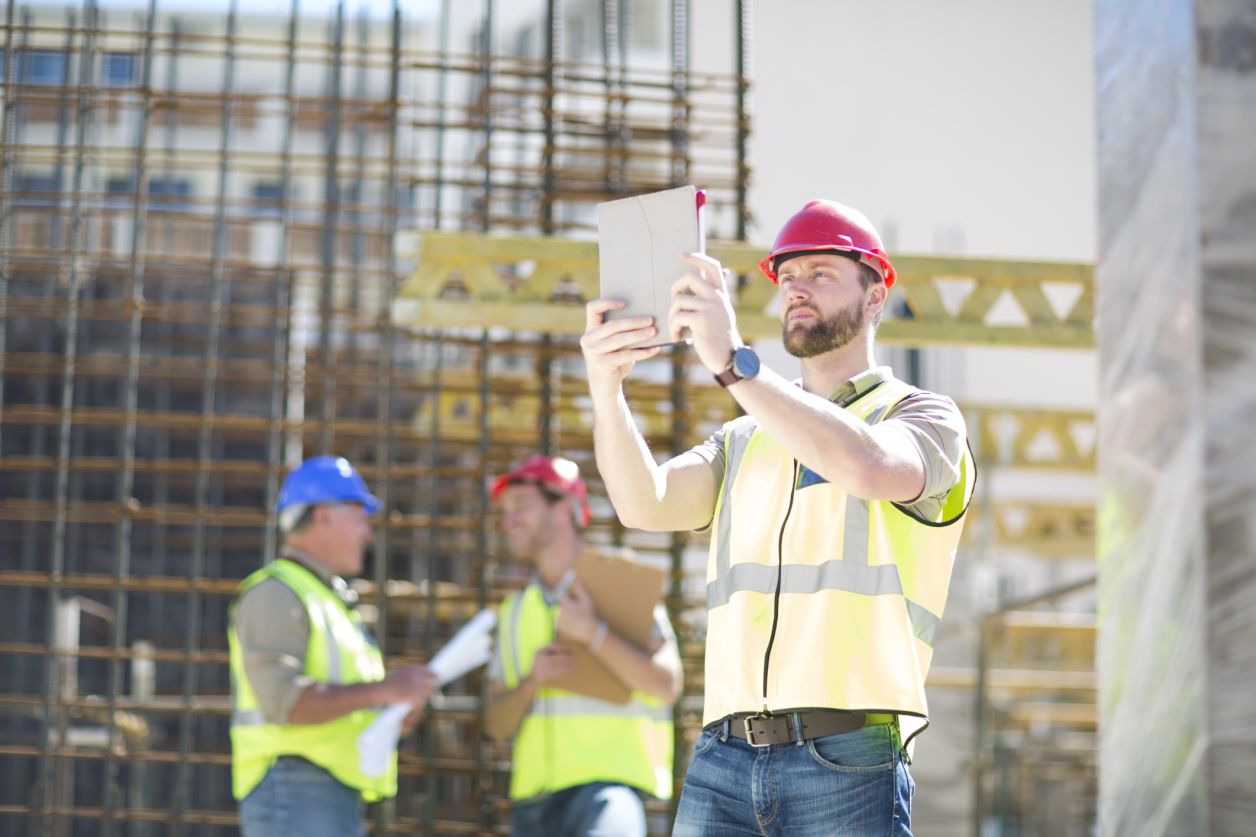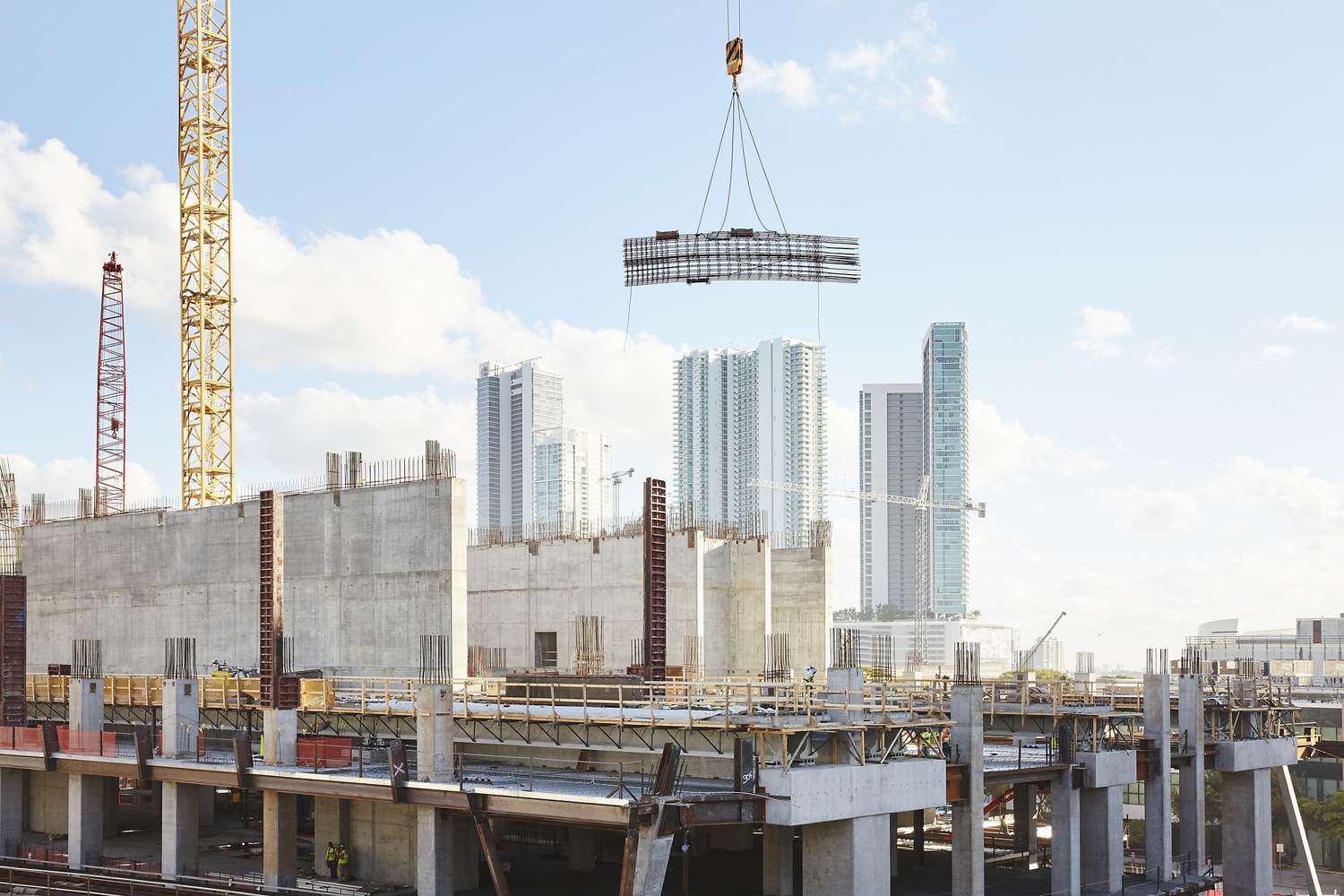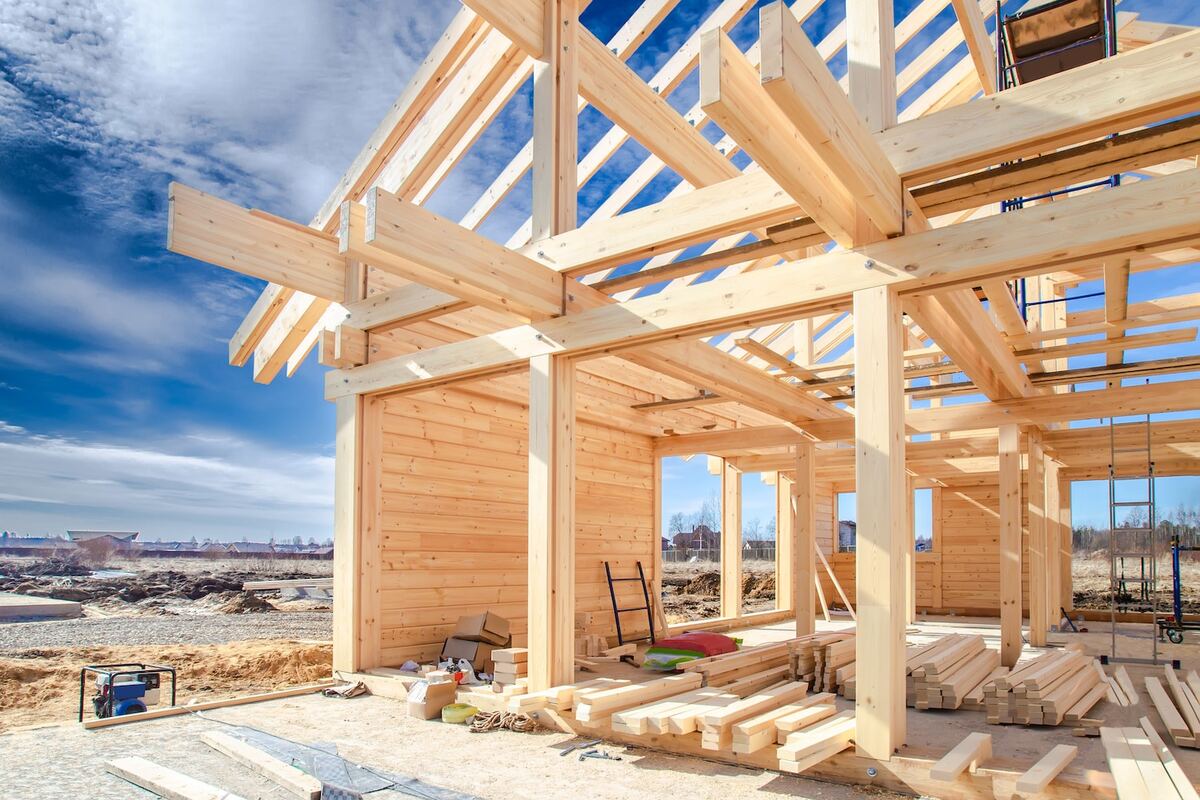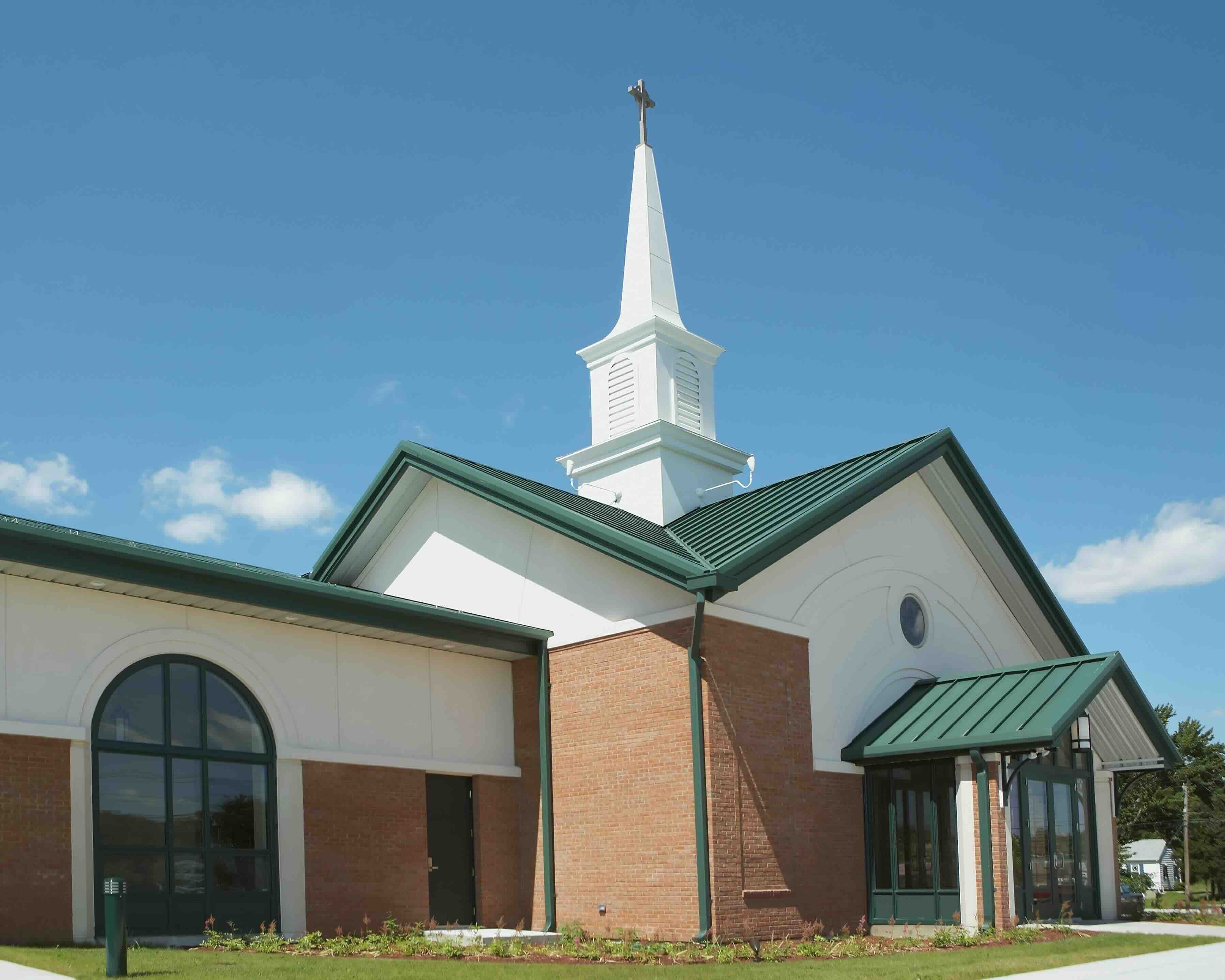Home>diy>Building & Construction>When Do You Close On A Construction Loan


Building & Construction
When Do You Close On A Construction Loan
Modified: August 16, 2024
Looking to close on a construction loan for your building construction project? Find out when you can expect the funds to be disbursed and start building.
(Many of the links in this article redirect to a specific reviewed product. Your purchase of these products through affiliate links helps to generate commission for Storables.com, at no extra cost. Learn more)
Introduction
When it comes to embarking on a construction project, financing plays a vital role in bringing your vision to life. One of the key components in financing a construction project is obtaining a construction loan. This type of loan provides the necessary funds to cover the costs of construction, including labor, materials, permits, and equipment.
However, before you can begin construction, you need to go through the process of closing on a construction loan. Closing on a construction loan refers to the finalization of the loan agreement, where all the necessary paperwork is completed, and funds are made available for the project.
In this article, we will delve into the intricacies of closing on a construction loan. We will explore the steps involved, the documentation required, the timeline, and potential challenges you may encounter along the way. By understanding the closing process, you will be better equipped to navigate this crucial stage of securing funding for your construction project.
Key Takeaways:
- Closing on a construction loan involves meticulous documentation, potential challenges, and a clear understanding of the timeline. Proactive communication and thorough preparation are crucial for a successful outcome.
- Factors such as financial readiness, builder selection, and market conditions play a pivotal role in the closing process. Understanding closing costs and potential challenges is essential for a smooth transition into the construction phase.
Understanding Construction Loans
Before we delve into the closing process, let’s first clarify what a construction loan entails. A construction loan is a type of short-term financing designed specifically for funding construction projects. Unlike traditional mortgages, where funds are disbursed in a lump sum, construction loans are typically distributed in a series of payments as the project progresses. This is known as a “draw” or “disbursement” schedule.
The draw schedule is usually based on specific milestones or stages of construction. As each stage is completed, the lender will inspect the progress and release funds accordingly. This makes construction loans more flexible, as borrowers only pay interest on the amount drawn rather than the entire loan amount.
Construction loans can be categorized into two main types: construction-to-permanent loans and standalone construction loans.
A construction-to-permanent loan, also known as a “one-time close” or “all-in-one” loan, combines the construction financing and permanent mortgage into a single loan. This means that once the construction is complete, the loan seamlessly transitions into a traditional mortgage.
On the other hand, standalone construction loans only cover the construction phase of the project. Once the construction is finished, borrowers must secure a separate mortgage to pay off the construction loan.
Construction loans typically carry higher interest rates compared to traditional mortgages due to the increased risk involved. The lender takes into account various factors such as the borrower’s creditworthiness, construction plans, and the appraised value of the property when determining the interest rate and loan terms.
Understanding the different types of construction loans and their associated terms and conditions is essential before proceeding with the closing process. This knowledge will empower you to make informed decisions and negotiate the best possible terms with your lender.
The Closing Process of a Construction Loan
Once you have secured a construction loan, the next step is to go through the closing process. The closing process of a construction loan is similar to that of a traditional mortgage. However, there are a few additional considerations specific to construction loans.
Here are the key steps involved in the closing process:
- Review the Loan Agreement: Before closing, carefully review the loan agreement to ensure that all the terms and conditions align with your expectations. Pay close attention to the interest rate, loan term, draw schedule, and any fees associated with the loan.
- Hire an Attorney: It is advisable to hire an attorney experienced in construction loan closings to guide you through the process. They will review the loan documents, ensure compliance with local regulations, and protect your interests.
- Property Appraisal: The lender will typically require a property appraisal to assess its value. This appraisal is especially crucial for construction loans, as it helps determine the loan amount and the loan-to-value ratio.
- Obtain Insurance: Before closing, you will need to secure builder’s risk insurance to protect against any potential damage or loss during construction. This insurance coverage is typically required by the lender.
- Complete the Closing Documents: Similar to a traditional mortgage closing, you will be required to sign various documents, including the promissory note, mortgage or deed of trust, and other loan-related disclosures.
- Escrow Account: A construction loan may involve an escrow account where funds are held to cover construction-related expenses. The lender may make disbursements from this account based on the agreed-upon draw schedule.
- Title Search and Insurance: A title search will be conducted to ensure that there are no outstanding liens or legal issues associated with the property. Additionally, you will need to purchase title insurance to protect against any future title disputes.
- Closing Costs: Like any other loan closing, a construction loan closing involves various costs, including origination fees, appraisal fees, attorney fees, and title insurance fees. Be prepared to pay these costs at closing.
- Funding and Disbursement: Once all the necessary paperwork is signed, the lender will fund the loan, and disbursements will be made according to the draw schedule. Funds will be released to cover the ongoing construction expenses.
Completion of the closing process signifies that your construction loan is official, and the necessary funds will be available for the construction of your project. It also marks the beginning of the draw schedule, where you can request funds as needed to cover the construction expenses.
Before initiating the closing process, it is crucial to ensure that you have all the necessary documentation and are prepared to meet any requirements set forth by the lender. This will help streamline the closing process and minimize any potential delays.
Factors to Consider before Closing on a Construction Loan
Before finalizing the closing on your construction loan, it is important to consider several factors to ensure a successful and manageable project. Taking these factors into account will help you make informed decisions and avoid potential pitfalls along the way.
Here are some key factors to consider:
- Financial Readiness: Evaluate your financial situation thoroughly. Ensure that you have a clear understanding of your budget, including all the costs associated with the construction project. Consider factors such as land acquisition, design and architectural fees, permit fees, construction materials, labor costs, and any potential contingency funds for unexpected expenses.
- Builder Selection: Choosing the right builder is crucial to the success of your project. Research builders in your area, review their credentials, and solicit references from past clients. Evaluate their experience, track record, and ability to deliver projects within the allocated budget and timeframe. Engaging the services of a reputable and qualified builder will not only ensure quality work but also provide confidence to the lender.
- Construction Timeline: Have a realistic timeline in place for your construction project. Understand the required permits and approvals, the estimated time for construction, and any potential delays that may arise. A well-planned and realistic timeline will help you accurately estimate the loan term and avoid unnecessary costs due to project delays.
- Loan Repayment Strategy: It is essential to have a clear repayment strategy for your construction loan. Consider how you plan to transition from the construction phase to permanent financing. If you have opted for a construction-to-permanent loan, ensure that you meet the eligibility criteria specified by the lender for the permanent mortgage.
- Interest Rate and Loan Terms: Review and understand the interest rate and loan terms offered by the lender. Evaluate the overall cost of the loan, including any closing costs and fees associated with the loan. Compare the rates and terms offered by different lenders to secure the most favorable financing for your project.
- Market Conditions: Take into account the prevailing market conditions when closing on a construction loan. Consider factors such as interest rate trends, local real estate market performance, and the potential market value of your completed project. This will help in assessing the long-term viability of the project and its potential for returns on investment.
- Contingency Plans: Construction projects often encounter unforeseen challenges or changes along the way. It is essential to develop contingency plans to address such situations effectively. Consider factors such as poor weather conditions, supply chain disruptions, or any unexpected increase in expenses. Having contingency plans in place will help mitigate risks and ensure the successful completion of your project.
By carefully considering these factors, you can make informed decisions and proceed with confidence in closing on your construction loan. It is important to perform due diligence, seek professional guidance as needed, and maintain a proactive approach throughout the process to maximize the success of your construction project.
Documentation Required for Closing on a Construction Loan
When closing on a construction loan, you will need to gather and provide various documents to the lender. These documents are crucial for assessing your eligibility and ensuring a smooth transition to the construction phase.
Here is a list of the typical documentation required for closing on a construction loan:
- Loan Application: Fill out a loan application form provided by the lender. This includes personal information, employment history, and details about the construction project.
- Financial Documents: Provide the necessary financial documents, including tax returns for the past few years, bank statements, investment account statements, and proof of income. These documents help the lender evaluate your financial stability and ability to repay the loan.
- Construction Plans and Specifications: Submit detailed construction plans and specifications for the project. This includes architectural drawings, engineering reports, materials list, and any other relevant documentation that outlines the scope of the construction work.
- Cost Estimate: Prepare a comprehensive cost estimate for the construction project. This document details the projected expenses, including labor costs, materials, permits, and any other associated costs. The lender will review this estimate to determine the loan amount.
- Builder Information: Provide information about the builder or contractor responsible for the construction. This includes their qualifications, experience, and references from past projects. The lender may require proof of licensing and insurance coverage from the builder.
- Property Information: Submit documents related to the property, including the deed or title, land survey, and any existing liens or encumbrances. The lender will conduct a title search to ensure there are no legal issues affecting the property.
- Insurance Documents: Obtain builder’s risk insurance coverage for the construction period. This insurance helps protect against damage or loss during construction. The lender will require proof of insurance before closing on the loan.
- Building Permits: Provide copies of any necessary building permits or approvals required for the construction project. This ensures that the project complies with local building codes and regulations.
- Construction Contract: Submit a signed construction contract between you and the builder. The contract should clearly outline the scope of the work, payment terms, and other relevant details related to the construction project.
- Other Supporting Documents: Depending on the lender’s requirements, additional documents may be requested, such as a feasibility study, environmental impact assessment, or zoning approvals.
It is important to ensure that all required documents are accurate, complete, and submitted in a timely manner. Any delays or discrepancies in the documentation can potentially slow down the closing process and hinder the progress of your construction project. Working closely with your lender and builder can help ensure that all necessary documents are in order, paving the way for a successful closing on your construction loan.
Before closing on a construction loan, ensure all necessary permits and approvals are in place. Review the loan terms and have a clear understanding of the draw schedule for funds. It’s also important to have a contingency plan in case of any delays or unexpected costs.
Closing Costs for a Construction Loan
When closing on a construction loan, there are various closing costs that borrowers should be aware of. Closing costs are the fees and expenses associated with finalizing the loan agreement and transferring ownership of the property. Understanding these costs will help you plan your budget accordingly and avoid any surprises during the closing process.
Here are some common closing costs associated with a construction loan:
- Loan Origination Fees: This is a fee charged by the lender to process and originate the loan. It is typically a percentage of the loan amount and covers administrative costs.
- Appraisal Fees: Before closing on a construction loan, the lender will require an appraisal of the property to determine its value. The appraisal fee covers the cost of hiring a qualified appraiser to assess the property’s worth.
- Attorney Fees: It is advisable to have an attorney review the loan documents and represent your interests during the closing process. Attorney fees vary and depend on the complexity of the transaction and the services provided.
- Title Insurance: Title insurance protects against any future claims or disputes regarding the property’s ownership. Both lender’s title insurance and owner’s title insurance may be required, which typically incur separate fees.
- Survey Fees: If a survey of the property is required, there will be a fee associated with hiring a professional surveyor to determine the boundaries and characteristics of the land.
- Prepaid Interest: Depending on the loan terms, you may need to prepay interest at closing. This covers the interest that will accrue between the loan closing and the first mortgage payment.
- Escrow Accounts: Construction loans may require the establishment of an escrow account to hold funds for construction-related expenses. The fees associated with setting up and maintaining this account may be included in the closing costs.
- Recording Fees: These fees are charged for recording the mortgage and other loan documents with the local government. The cost varies depending on the location and the number of documents being recorded.
- Processing and Underwriting Fees: Some lenders may charge fees for processing and underwriting the construction loan. These fees cover the costs associated with evaluating the borrower’s creditworthiness and assessing the loan application.
- Other Miscellaneous Fees: There may be other minor fees associated with the loan closing, such as document preparation fees, courier fees, and wire transfer fees. These vary depending on the lender and the specific circumstances of the loan.
It is important to note that the closing costs associated with a construction loan can significantly vary depending on factors such as loan amount, location, lender, and loan terms. It is advisable to carefully review the loan estimate provided by the lender, which outlines the expected closing costs. This will help you budget accordingly and be prepared for the financial obligations at the time of closing.
Working closely with your lender and seeking clarification on any unclear or unexpected fees can help ensure a transparent and smooth closing process. By understanding and accounting for these closing costs, you can better manage your overall construction budget and ensure a successful project.
Closing Timeline for a Construction Loan
When closing on a construction loan, it is important to have a clear understanding of the timeline involved. The closing timeline refers to the duration it takes to complete the necessary steps leading up to the loan closing. This timeline can vary depending on factors such as the complexity of the project, the responsiveness of all parties involved, and any potential challenges that may arise.
Here is a general breakdown of the closing timeline for a construction loan:
- Preparation and Documentation: The initial stage involves gathering all the necessary documentation required by the lender. This includes completing the loan application, preparing construction plans and specifications, obtaining cost estimates, and compiling financial statements. This stage can take several days to several weeks, depending on the preparedness and availability of the required documents.
- Loan Processing: Once all the documentation is submitted, the lender will review the materials and process the loan application. This may involve evaluating your creditworthiness, property appraisal, and verifying your financial information. The processing stage generally takes a few weeks, but it can be expedited with proper preparation and prompt communication.
- Underwriting and Approval: After the loan processing is complete, the lender’s underwriting team will thoroughly assess the loan application, documents, and other information provided. This stage involves verifying the borrower’s eligibility, reviewing the construction plans, and assessing the project’s feasibility. The underwriting process typically takes a few weeks, depending on the complexity of the project and the lender’s internal procedures.
- Clearing Conditions: During the underwriting process, the lender may request additional documentation or clarification on certain aspects of the loan application. These conditions must be resolved before the loan can move forward to the closing stage. Clearing all conditions required by the lender may take additional time, ranging from a few days to a couple of weeks.
- Finalizing and Scheduling the Closing: Once all the conditions are cleared, the final loan documents and closing instructions will be prepared. This stage involves coordinating with the borrower, the builder, and any necessary third parties, such as attorneys and escrow agents. The closing date and time will be scheduled, taking into consideration the availability and preferences of all parties involved. This stage typically takes a few days to a week to finalize.
- The Loan Closing: On the scheduled closing day, you will meet with the lender and other parties involved to sign the loan documents, pay the closing costs, and complete the necessary paperwork. The closing process itself usually takes a few hours, depending on the complexity of the loan and the number of parties involved.
- Funding and Disbursement: After the loan closing, it may take a few days for the lender to process the paperwork, verify the final details, and release the funds. Once the funds are disbursed, you can start the construction project and begin making draw requests based on the agreed-upon draw schedule.
It is important to note that the closing timeline can vary depending on several factors, including the efficiency of the borrower in providing necessary documents, responsiveness from all parties involved, and any unforeseen challenges or delays. Effective communication, prompt responses, and proper preparation can help expedite the closing timeline and ensure a smoother process.
Working closely with your lender and any relevant professionals, such as attorneys or construction consultants, can help streamline the closing process and facilitate a successful transition into the construction phase of your project.
Potential Challenges in Closing on a Construction Loan
While closing on a construction loan is an important milestone in your construction project, it is not without its challenges. Understanding and being prepared for these potential challenges can help you navigate the closing process more effectively. Here are some common challenges you may face when closing on a construction loan:
- Complex Documentation: The documentation required for a construction loan can be extensive and complex. Gathering all the necessary documents and ensuring they are accurate and complete can be time-consuming and overwhelming. Proper organization, attention to detail, and working closely with professionals can help overcome this challenge.
- Strict Lender Requirements: Lenders often have stringent requirements for construction loans. They may have specific criteria for borrower qualifications, project scope, budget thresholds, and risk tolerance. Meeting these requirements and satisfying the lender’s criteria can be challenging, particularly if your project does not align perfectly with their guidelines.
- Appraisal Issues: Construction loans require an appraisal of the property to determine its value. If the appraiser determines that the value of the property is lower than expected, it can affect the loan-to-value ratio and potentially impact the loan approval or loan amount. Addressing appraisal issues may involve negotiating with the appraiser or seeking a second appraisal.
- Builder Approval: Some lenders have specific requirements for the builder or contractor involved in the construction project. They may require proof of licensing, insurance coverage, and financial stability. If your chosen builder does not meet the lender’s criteria, it can pose a challenge in obtaining the loan approval. In such cases, you may need to find an alternative builder or work with your lender to find a solution.
- Delays in Permit Approvals: Obtaining the necessary permits and approvals from local authorities can cause delays in the closing process. This is particularly challenging if there are unforeseen regulatory requirements or if the permitting process is lengthy. It is important to be proactive in securing the necessary permits and allow ample time for any potential delays.
- Budget and Cost Overruns: Construction projects are prone to budget and cost overruns. If the project costs exceed the initial estimates or if the borrower does not have contingency funds in place, it can create challenges in closing the loan. Lenders may require reassessment of the project’s feasibility, additional documentation, or even a reassessment of the loan terms.
- Changing Market Conditions: Economic factors and changing market conditions can impact the closing process. Interest rate fluctuations, changes in housing market trends, or shifts in the construction industry can affect the lending landscape. Staying informed about market conditions and having alternative financing options in place can help mitigate this challenge.
- Third-Party Coordination: Closing on a construction loan often involves coordination with various third parties, including attorneys, title companies, appraisers, and builders. Delays or miscommunications among these parties can create challenges in the closing process. Effective communication, proactive organization, and regular follow-ups can help minimize these challenges.
While these potential challenges may arise during the closing process of a construction loan, it is important to approach them with a proactive mindset and seek solutions. Maintaining open communication with your lender, builder, and other professionals involved can help address these challenges more effectively, leading to a successful closing and a smooth transition into the construction phase of your project.
Conclusion
Closing on a construction loan marks a significant milestone in your construction project and sets the stage for turning your vision into reality. Understanding the intricacies of the closing process, from documentation requirements to potential challenges, is crucial to ensure a successful outcome.
By familiarizing yourself with the various factors to consider before closing, such as financial readiness, builder selection, and loan repayment strategy, you can make informed decisions and maximize the chances of a smooth closing. Gathering the necessary documentation, including construction plans, cost estimates, and builder information, is essential for demonstrating your project’s feasibility and eligibility for financing.
While the closing process may present challenges, such as complex documentation, strict lender requirements, or appraisal issues, proactive communication with your lender and other professionals involved can help overcome these obstacles. Being prepared for potential delays in permit approvals or budget overruns can help mitigate risks and ensure a successful loan closing.
Ultimately, a successful closing on a construction loan sets the stage for the construction phase of your project. It provides the necessary funding to bring your vision to life and creates opportunities for growth and development. As you navigate the closing process, remember to stay informed, seek guidance when needed, and maintain open communication with all parties involved.
With careful planning, thorough preparation, and a proactive approach, you can successfully close on a construction loan and embark on a construction journey that brings your dreams to fruition.
Frequently Asked Questions about When Do You Close On A Construction Loan
Was this page helpful?
At Storables.com, we guarantee accurate and reliable information. Our content, validated by Expert Board Contributors, is crafted following stringent Editorial Policies. We're committed to providing you with well-researched, expert-backed insights for all your informational needs.















0 thoughts on “When Do You Close On A Construction Loan”